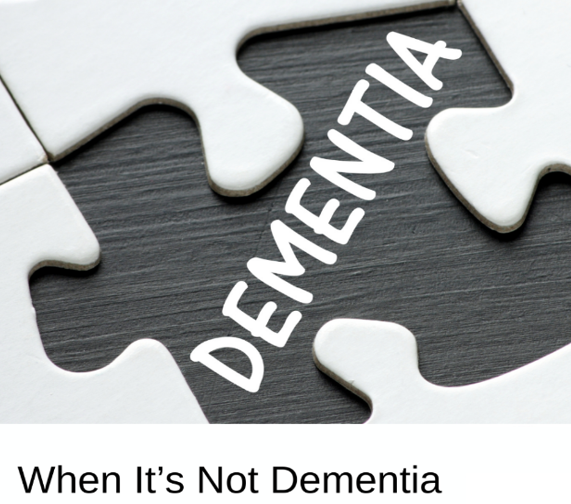What is not dementia?
Dementia-like symptoms can be caused by other conditions, many of which are treatable. Depression, nutritional deficiencies, side-effects from medications and emotional distress can all produce symptoms that can be mistaken for early signs of dementia. These include communication and memory difficulties and behavioural changes. Consequently, it is vital that a person showing cognitive changes consults a doctor to see if the condition can be treated.
Confusion
When someone has difficulty recognising what time of day it is and where they are and becomes over-anxious or agitated, it is often assumed that they are showing the first signs of dementia. If these symptoms of confusion have developed relatively quickly, they may have been caused by a lack of food or dehydration, or by a urinary or chest infection.
It is important that an early diagnosis is made to establish whether the symptoms are caused by a treatable illness. A change in – or a reaction to – medication or taking alcohol in conjunction with medication, can also produce symptoms of confusion.
Pharmacy staff should look out for these signs and encourage the person to seek medical advice from their GP to eliminate these possibilities.
Depression
The symptoms of depression are often mistaken for dementia. It is not easy to define the symptoms because many people with dementia develop signs of depression, such as feelings of low self-esteem and confidence, tearfulness and appetite, concentration, and memory problems. If depression is diagnosed by a GP, a wide range of treatments are available.
Medical conditions
Thyroid, kidney, liver, heart and lung problems, chest infections and strokes are among the many medical conditions that can produce dementia-like symptoms. Urinary tract infections are extremely common, and they can produce similar symptoms to dementia, especially in the elderly. Older people with poor vision can appear to show signs of dementia, including poor spatial awareness (for example they may bump into furniture, or fall over chairs and other objects in their home). They may struggle to read or follow television programmes. A simple eye test – and new glasses – may be all they need to overcome these problems. People with hearing difficulties may appear to show signs of dementia because they have difficulty following conversations. They may become confused and withdrawn. Again, a simple hearing test and hearing aid may resolve these difficulties.

